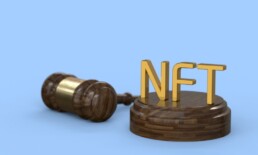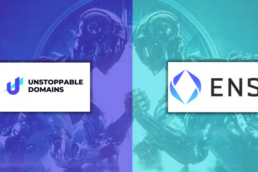The Securities and Exchange Commission (SEC) has taken a somewhat critical view of cryptocurrencies but will this view carry over into the world of NFTs?
The Howey Test
Firstly, it’s important to establish exactly what a “security” is, this will be the key factor in how the SEC decides to regulate NFTs.
The “Howey Test” is what the SEC uses to determine whether something is a security. The test has its origins in a famous case between a citrus-growing company and the SEC in 1946.
According to the Howey Test, a transaction is deemed a security transaction if it’s:
1- An investment of money.
2- An investment in a common enterprise.
3- There is a reasonable expectation of profit.
4- The profit is derived from the efforts of others.
Current SEC Interest in Web3
In April of 2022 SEC Chairman, Gary Gensler, said that he believed the top 5 cryptocurrency exchanges are “likely trading securities” and should have to comply with the applicable laws. In May of 2022 the SEC announced a doubling of the workforce at its Crypto Assets and Cyber Unit (formerly known as just the “Cyber Unit”).
This unit will likely be responsible for NFT and crypto regulation. A doubling of the workforce suggests the SEC expects there to be a lot of work for them in this area in the future and with good reason. The Web 3.0 market is expected to grow at nearly 44% per year for the next 7 years.
Ahead of the 2022 tax year, the Internal Revenue Service (IRS) introduced a broadened “digital assets” category, which will include cryptocurrencies and NFTs. It defines digital assets as any digital representation of value recorded on a “cryptographically secured distributed ledger or any similar technology”.
Until now much of the focus of the SEC has been on initial coin offerings (ICOs) and cryptocurrencies and many issuers have been fined or settled out of court. But as the NFT market continues to grow, so will the SEC’s focus upon the space.
On October 11th 2022, the SEC announced it was investigating Miami-based Yuga Labs Inc. Yuga Labs is well known in the NFT community as the creator of the Bored Ape Yacht Club NFT collection. The SEC is concerned that some of its NFT sales may violate federal laws. They believe the NFTs they sold are similar to stocks and should therefore follow the same disclosure rules but have not accused the company of breaking the law.
Arkonis Capital, a broker-dealer registered with the SEC, believes that NFTs present a “unique challenge to the SEC’s ability to protect investors”. They also think that there’s a difference between NFTs and fractional NFTs (F-NFTs) and that the latter may qualify as a security whilst the former may not.
Regulations targeting NFTs have not been announced by the SEC as of yet, but they almost certainly will be in the future. They could take many forms, below we’ll look at 2 of the possibilities.
NFT Marketplaces May Have To Register As Broker-Dealers
Gensler has said many times in the past that he believes crypto exchanges should have to register as broker-dealers. He might have the same thoughts on NFT marketplaces such as OpenSea or Rarible.
This would force them to make their books available for audit and to adhere to more stringent know your customer (KYC) and anti-money laundering (AML) requirements. Rules around order execution would also change which would help prevent market manipulation.
NFTs May Get Their Own Regulations
Specific regulations for NFTs could be developed and, if the market gets big enough, this seems to be the most likely outcome. Given the variability in the characteristics of different NFTs (royalties can be different between different tokens, some tokens are fractionalized, different use cases), this may be the best option.
What these regulations would look like is difficult to say at the moment. Ideally, they’d protect the average investor whilst allowing NFT development and investment to continue to grow. However, enforcing regulations that do this is easier said than done, especially in an industry that tends to be suspicious of centralized authority.
Takeaway
The importance of clarification, if the NFT space is to grow, cannot be understated and has been recognized by the intergovernmental Financial Action Task Force (FATF). They believe whether an NFT is a security or not should be evaluated on a case-by-case basis.
This seems like a tall order given there are thought to be over 11 million as of September 2022, and that the value traded grew about 21,000% from 2020 to 2021.
Although regulation is seen by some as a bad thing and in some ways goes against one of the hallmarks of Web3, decentralization, introducing regulations may be a positive force in the NFT world. It would allow for wider adoption and encourage more cautious investors to enter the space, both would accelerate the mainstream adoption of NFTs.
At the moment, the most likely outcome seems to be that NFTs will be treated differently depending on their format. NFTs that offer investors rights to future sales could be treated as securities as could fractionalized NFTs.
Regardless of what happens, regulation will almost certainly arrive at some point. Hopefully, the SEC can strike the correct balance between protecting investors whilst allowing the NFT space to flourish, and fulfill the immense promise it holds at the moment.
Get more insights like this on the business and marketing of the metaverse delivered to your inbox. We’ll never spam you, ever.
Harry Harrison
After spending 3 years traveling around Australia and Asia I began writing about finance whilst stuck at home at the beginning of 2020 thanks to Covid. I've always had a strong interest in business and technology and he thoroughly enjoys learning more about anything connected to the Metaverse, NFTs or crypto. In my spare time he enjoys playing soccer, pool or chess and reading about history, science and technology.
Related Posts
December 8, 2022
Overview of NFT Use in the Music Industry
NFTs are a new technology set to revolutionize many old industries. One of…
December 6, 2022
The Impact of The Merge on NFTs
The Merge has been perhaps the most important development to the Ethereum…
October 11, 2022
Unstoppable Domains VS Ethereum Name Service
Unstoppable Domains (UD) and the Ethereum Name Service (ENS) are both used to…



